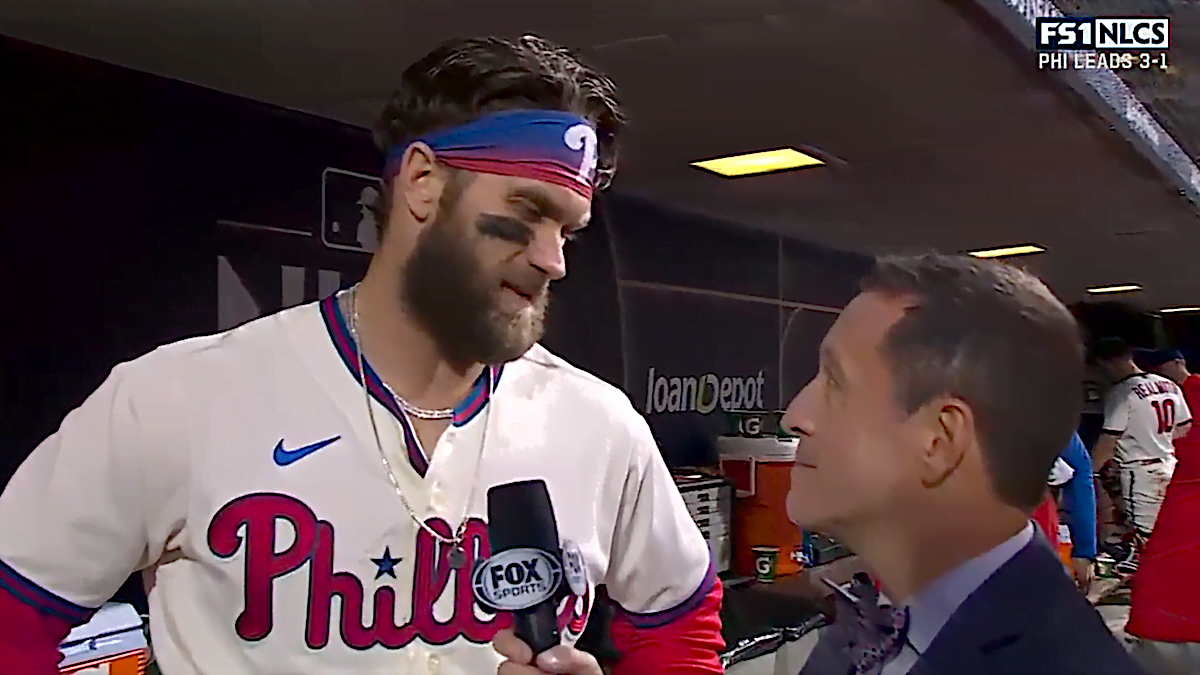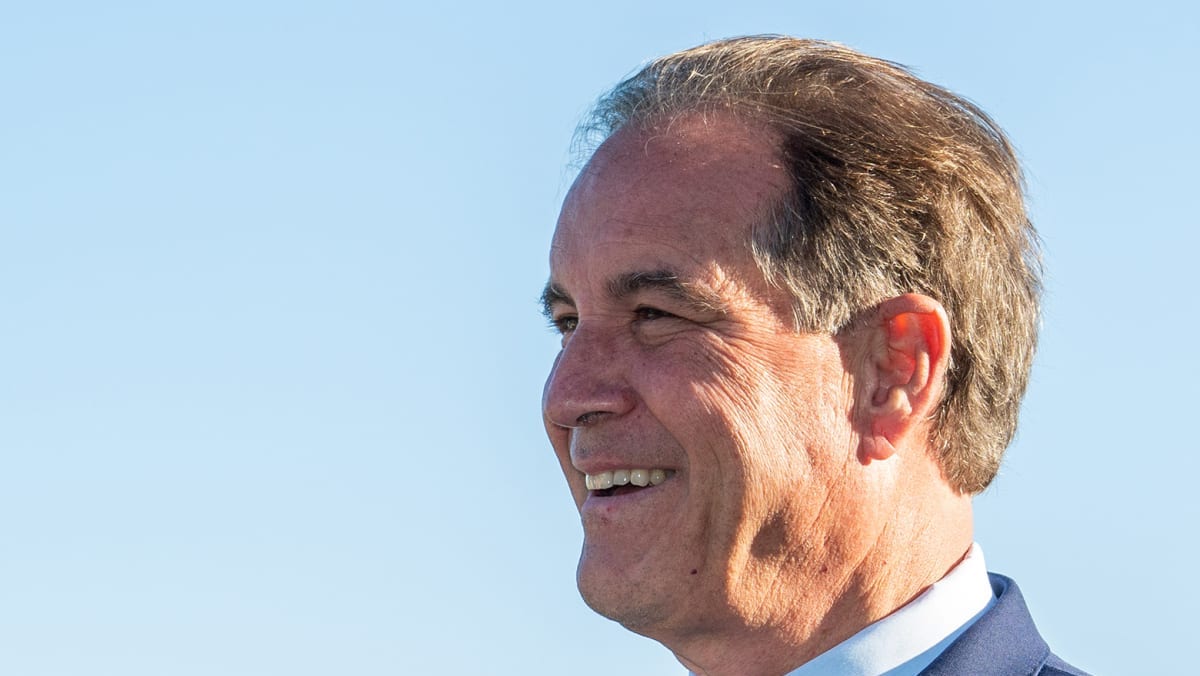In-game interviews during sports broadcasts have never been terribly popular.
Athletes and coaches don’t like the intrusion, and the reporters doing the interviews know that. Fans and media dislike them too because there is very rarely anything substantial or insightful gained from these conversations.
Just show the game! Broadcasts were fine without these interviews!
Yet these interludes are clearly part of sports television’s future and their presence will likely only grow. In-game interviews have been a part of national NHL broadcasts for years. NFL viewers have surely noticed this season that coaches are now being interviewed after the first quarter.
Do the interviews really add anything to the broadcast? Arguably, they provide some glimpse into the personalties behind the faces we see on screen. It’s sometimes amusing when a coach is irritated if his team is playing badly. What they don’t say can actually say quite a bit.
Viewers watching Fox’s coverage of the Major League Baseball postseason have seen in-game interviews take on a greater role, notably during the National League Championship Series. The story of the NLCS was Philadelphia Phillies slugger Bryce Harper asserting his superstar power when his team needed it most. The emergence of six-year veteran Rhys Hoskins as a postseason star, hitting four home runs in the series, was another story worth following.
Both players, their respective performances, and the excitement they created in Philadelphia’s Citizens Bank Park were highlighted by dugout conversations with reporter Ken Rosenthal during the Fox telecast. Sure, there were some standard “keep having great at-bats” and “we know there’s 27 outs” responses. But it was also clear how much the Phillies fans were lifting the players.
“You can’t say enough about the crowd,” Kyle Schwarber told Rosenthal. “Setting the tone from the first pitch and late into this [first] inning. We’re gonna keep it going the whole game.”
A few of the interviews even gleaned some insight as to what hitters were looking for during at-bats and why pitching changes were made. For instance, Phillies manager Rob Thomson explained why he took starting pitcher Ranger Suarez out of Game 3 after five innings even though he was still throwing well.
“He hadn’t pitched in nine days; he was close to 70 pitches,” said Thomson. “I just felt like the third time through — Machado, Drury, that group of people — I want a right-hander on ’em.”
After Harper hit a two-run home run to give Philadelphia a 4-3 lead and an eventual series victory, he told Rosenthal he was looking for a fastball from Padres reliever Robert Suarez.
“I felt like I was seeing it better as the at-bat got longer and longer,” Harper said. “I felt like I was seeing more pitches, felt like I was seeing it better. He beat me with the heater when we were in San Diego, so just tried to stay on that pitch.
“Once I took the change-up 2-1 or 1-2, whatever it was, I knew he was gonna come with his heater. It’s his best pitch. So I just tried to take the best swing I could and was able to do damage with it.”
For a 30-second or one-minute conversation, those are compelling tidbits to include in a game broadcast. They add something to the on-air product. Whether or not you feel they make the telecast better might depend on your feelings about in-game interviews overall. But these conversations don’t make the broadcast worse.
Rosenthal himself has heard plenty of feedback, much of it apparently negative, from fans on Twitter during the postseason. Evidently, the response has been enough that the veteran reporter felt the need to address the matter on The Athletic Baseball Show podcast this past weekend.
First, this is something Fox has been pursuing for years, only to finally break through this season. The in-game interviews debuted during the final weekend of the regular season during a Mets-Braves match-up. When they went well, Fox decided to continue the interviews for its postseason coverage.
“We have sought, Fox has, access to the players during games for some time,” Rosenthal said. “And it’s been something, obviously, that was not necessarily embraced right away by Major League Baseball, by the teams, by the players. It’s been, kind of, evolving over time.”
Mic’ing players up during the regular season was a popular feature of ESPN’s MLB telecasts, notably for its Sunday Night Baseball showcase. But that wasn’t going to be allowed during high-stakes postseason games. Interviews in the dugout were less intrusive, less interfering with the play on the field.
Rosenthal also provided some insight into the entire process. He’s not “barging into the dugout” uninvited with a microphone and camera and interrupting players as they’re focused on the game at hand.
“This is all basically pre-arranged,” Rosenthal explained. “The clubs know about it and have approved it. The players know about it, and most of them have approved it. The league certainly knows about it and has been supportive of it, because the league wants this kind of access too. They want this vividness to the broadcasts. And in my view, it’s working.”
Rosenthal went on to say that not all players have approved the interviews. Some aren’t comfortable with talking in the dugout during games, which is certainly understandable. But those players are in the minority.
Furthermore, players don’t perceive the interviews as an intrusion as many fans and media believe. They embrace the opportunity to promote themselves and the game, which they surely realize is vital to the success of baseball.
San Diego Padres fans probably feel like the in-game interviews were one-sided, with their favorite players not getting the same airtime and showcase. Rosenthal acknowledged that it’s not a perfect setup, dictated by game situation (two outs in the inning, for instance) and player preference. Maybe Padres players or manager Bob Melvin didn’t want to talk during the game. Or maybe the opportunity wasn’t as available as it was for the Phillies.
What’s apparent from Rosenthal’s explanation, however, is that in-game interviews are going to become a regular part of Fox’s MLB broadcasts. And if they’re successful for Fox, it’s likely that we’ll see them on Turner Sports’ and ESPN’s baseball coverage as well. Like them or not, they’re likely here to stay.
“Yes, the games are important,” said Rosenthal on The Athletic Baseball Show. “But this is not a sport where everyone is involved in the action at every moment. So there is space for this kind of thing.”
Ian Casselberry is a sports media columnist for BSM. He has previously written and edited for Awful Announcing, The Comeback, Sports Illustrated, Yahoo Sports, MLive, Bleacher Report, and SB Nation. You can find him on Twitter @iancass or reach him by email at iancass@gmail.com.








